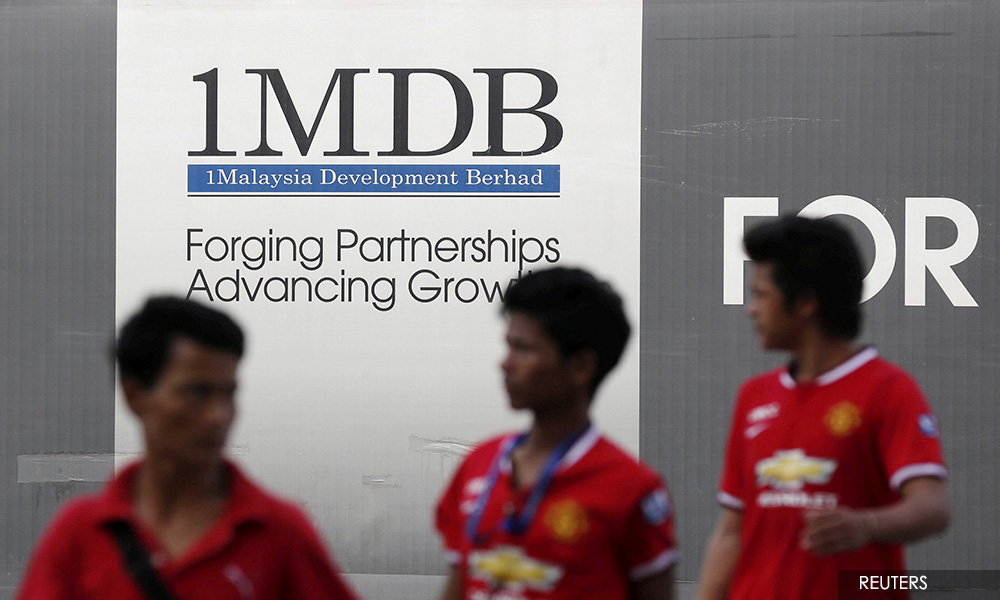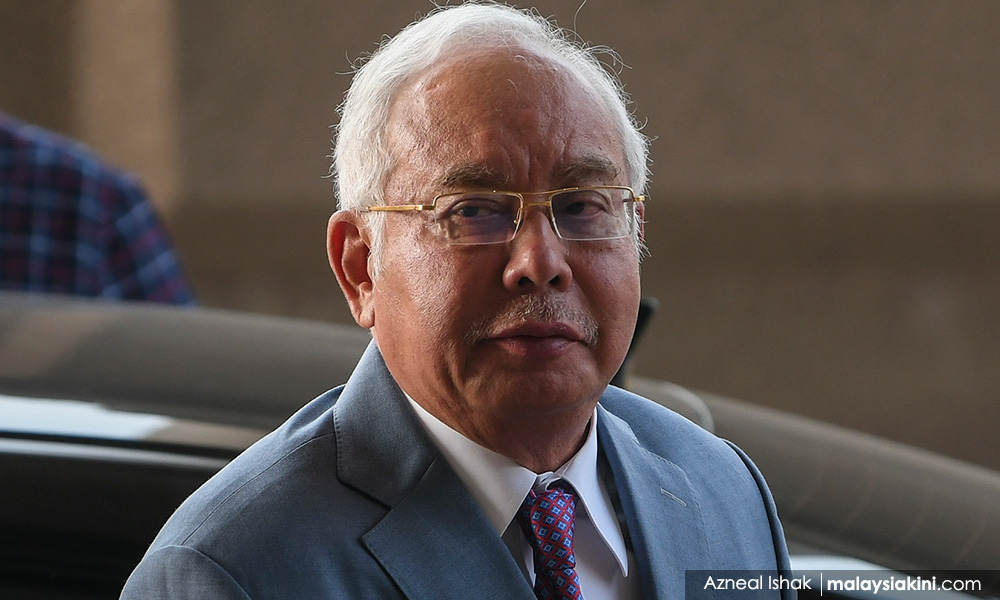
INTERVIEW | Pink diamonds, superyacht Equanimity and details of an intricate money trail allegedly linked to sovereign wealth fund, 1MDB, have surfaced since the financial scandal broke five years ago.
With the ongoing criminal trials faced by former prime minister Najib Abdul Razak, the public has been regaled almost daily with witness accounts of how the Malaysian wealth fund became a global financial talking point.
One key part of the story, however, remains obscure. Why did the Najib-administration agree in 2017 to pay International Petroleum Investment Corporation (IPIC) US$5.78 billion (RM24 billion) from the public's coffer?
Details of this settlement, called a consent award, remains a secret as it was procured in London through arbitration, akin to a confidential out-of-court settlement.
After GE14, the Pakatan Harapan administration challenged the consent award, claiming it was an attempt to cover up fraud. Last week, the UK Court of Appeal ruled that the suit could proceed in the London High Court.
In an interview with Malaysiakini, Toby Landau (photo), the lawyer representing the present government in the matter, said the Court of Appeal decision would allow details of the IPIC settlement to be heard in court for the first time and possibly by the public.
"The significance of this case is that this is a major part of the 1MDB story.

"[...] It is a major gap in the story which could have remained a gap if it had been left in private arbitration and never come to light.
"And now, (with) the prospect that it will come to light and it will actually complete (and) join the dots in the story. If it does that, and if the public has access to that, then that may be very significant in telling the story globally [...]," he said when met in Singapore earlier this week.
Back in 2015, IPIC had offered to lend 1MDB US$1 billion (RM4.1 billion) and take responsibility for coupon payments for bonds amounting to US$3.5 billion (RM16 billion) issued by 1MDB.
It also forgave an undisclosed amount of debt that 1MDB owed in exchange for assets that were not identified.
However, the deal soured two years later when IPIC argued that several payment obligations were not met.
The two parties then entered into arbitration, achieving the above-mentioned settlement where 1MDB was required to pay IPIC US$1.2 billion (RM5 billion) and assume responsibility for US$3.5 billion (RM15 billion) in bonds which IPIC previously guaranteed.
Along with the coupon rate, this meant 1MDB needed to pay the Abu Dhabi-based sovereign investment firm US$5.78 billion (RM24 billion) in total.
This was despite 1MDB claiming it had already paid a separate US$3.51 billion (RM15 billion) to IPIC’s subsidiary, Aabar Investments PJS.

The US Department of Justice revealed in their 1MDB civil forfeiture suits that this separate payment was actually made to Aabar Investments PJS Ltd - a shell company bearing a similar name but based in the British Virgin Islands.
IPIC officials were allegedly complicit, and the money was allegedly funnelled to fugitive businessperson Low Taek Jho (Jho Low), Najib and their associates.
Evidence for global 1MDB cases
Besides Malaysia and the UK, the global 1MDB scandal has led to investigations in Australia, Hong Kong, Luxembourg, Seychelles, Singapore, Switzerland, Thailand, the UAE, and the US.
Landau noted that the outcome of the settlement challenge could have an impact on 1MDB-related cases outside of the UK.
This was because evidence heard in an English court can be used in other jurisdictions following approval of applications for permission.
"There is now much more prospect of evidence coming out in the English proceedings which might be of relevance, and it might be used in the parallel cases in other jurisdictions," he said.
"Anybody who is trying this case, in any jurisdiction, will need to have a full understanding of what happened and this key component was not part of a public process previously," Landau added.
Late-2020 decision 'not impossible'
In the challenge, the Malaysian government (1MDB and Minister of Finance Inc) is arguing that the consent award is invalid as it was a mechanism to facilitate a fraudulent deal, and doing so through arbitration had kept it from public scrutiny.
It also wants to recover US$3.5 billion (RM15 billion) from IPIC and the real Aabar establishment.
It was previously reported that Malaysia had already paid US$1.46 billion (RM6 billion) to both entitles and the new government had refused to pay the rest.
In deciding whether fraud was involved, Landau said the London High Court would need to look at related documents and call up witnesses.

He declined to speculate if Najib (photo) himself will be required to testify, stating it was too early to tell.
With procedures for the case able to begin "straight away", Landau foresaw a three to four-week trial.
Trial dates have not been decided, but he expected this to be established by early-2020.
"It's not impossible that we get a judgement from the High Court by the end of next year, it is not impossible, but it depends upon lots of things," he said, explaining that cases concerning arbitration were fast-tracked in the English legal system.
Appeals, in-camera trial expected
One of those factors includes whether IPIC will apply for permission to appeal the Court of Appeal ruling and whether it will be granted.
Other possibilities include an order for the trial proceedings to be performed in-camera (in chambers), meaning the public and media will not be allowed to attend them.
Landau explained that this was because the case was a challenge to an arbitration settlement.
"Because arbitration itself is confidential, the court process allows some confidentiality in order to protect the arbitration.
"The presumption is confidentiality unless the court directs otherwise but what tends to happen, what will happen [...] is there will be a public judgement," he said.
Even with a public judgement, Landau said there was a possibility that portions could be redacted, again due to it being an arbitration matter.
"But there is so much about this case that is in the public domain already that there will be a question (of) how much the judgement can be redacted because people know anyway," he surmised.
Parties can apply for the proceedings to be heard in open court and for the full judgement to be made public, subject to a decision by the court.
Danger of arbitration misuse
Trained at Oxford and Harvard, Landau has spent the past 26 years in practice. In 2008, he was appointed as a Queen's Counsel (QC), making him one of the top barristers in the UK.

With law chambers in London and Singapore, he is qualified to practice in England, Wales, New York, Singapore, Northern Ireland, the British Virgin Islands and Dubai.
Specialising in international and commercial law, especially arbitration, he has represented and acted against many governments.
Commenting on the 1MDB-IPIC case, he cautioned against the abuse of arbitration for crimes such as money laundering.
"Arbitration is a major system of international justice, it is used around the world.
"But because it tends to be confidential, there is a danger that it is misused, for example, money laundering. And that's where national courts have to be alert to have safeguards to stop that," he said.
Malaysia was represented by Landau, Peter Webster and Joseph Sullivan in the London Court of Appeal case, while IPIC and Aabar Investments PJS were represented by Mark Howard, Craig Morrison and Nathaniel Bird. - Mkini



No comments:
Post a Comment
Note: Only a member of this blog may post a comment.